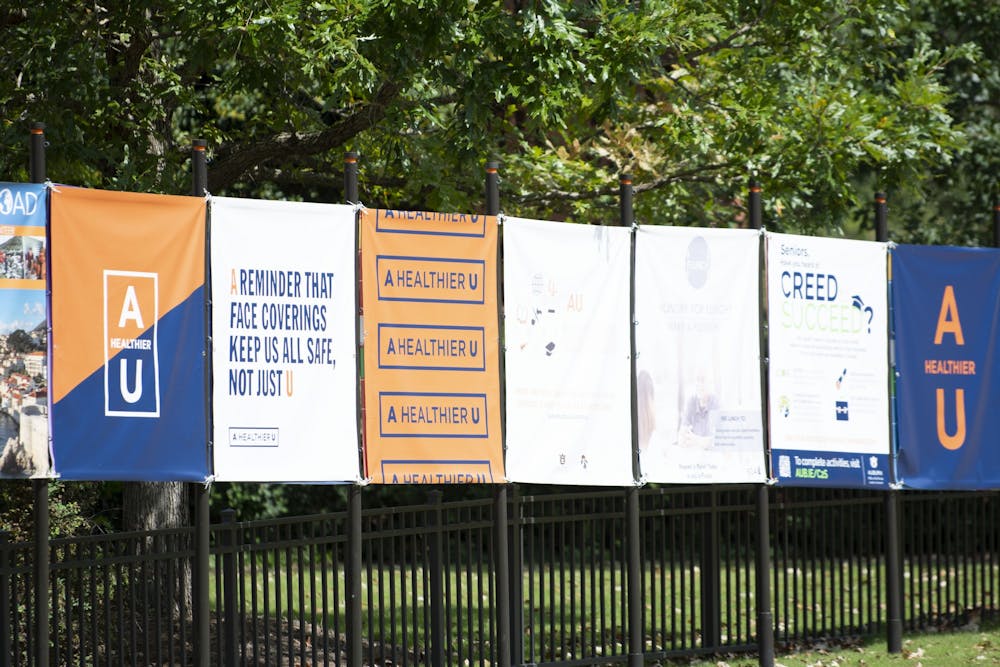Correction: A previous version of this article stated the meeting on Tuesday, Nov. 10 was an AAUP Auburn chapter meeting. It was a special meeting of the University faculty called by the Faculty Senate Executive Committee. The mistake has been fixed below, and The Plainsman apologizes for the error.
Auburn University professors are calling on administration to give them more freedom in choosing how to teach their classes next semester.
Currently, plans are for “most” classes to be held in-person.
On Tuesday, Nov. 10, 400 faculty joined a Zoom call for a special meeting of the University faculty called by the Faculty Senate Executive Committee. Before the meeting, the Auburn chapter of the American Association of University Professors laid out a summary of their experiences and recommendations concerning the changes being made to the spring 2021 semester. Their summary was divided into three sections.
Self-Reported Experiences
In order to request a mode of teaching that is not in-person, such as online or partially online, faculty at Auburn must request a change in modality from their dean.
However, from feedback gained from faculty representing five different colleges at Auburn, the Auburn chapter of the AAUP determined that there was no consistent process across these colleges for requesting a change in course modality, and in at least one college, there is no choice other than in-person instruction for part-time contingent faculty.
The Auburn chapter also concluded that these irregularities in procedures extend to “graduate instructors of record” and teaching assistants.
They said it is unknown if there is any way for professors whose request to teach differently to appeal the decision.
“It is unclear if any college or the University has an appeal process for faculty who are denied their choice of teaching modality,” the chapter said.
In a few cases, faculty have been denied a particular teaching modality, even when the request to change modalities was due to an instructor’s family member’s needs, which the University has said is a valid reason for requesting a change in teaching modality.
According to the Auburn chapter, there has also been at least one case where a modality change request was approved at one level, but denied at another level. They also said there is a discrepancy in the University’s guidance about faculty safety between researching, teaching and outreach related travel.
Faculty Concerns
There are some fields, according to the Auburn chapter, where social distancing and mask wearing make teaching a “difficulty, if not impossible.” In these cases, they argue online instruction would be the most appropriate.
Other concerns dealt with potential breaches in confidentiality requirements for health information. For example, the University has said that faculty members could be approved for a change to an online course modality if the health of the faculty member in question is “at-risk.” While the Auburn chapter said this is a valid reason for changing how they teach, they said it is also a tacit publication of their health information, which could possibly impact future promotions or tenures at the University.
The faculty chapter was concerned about whether this health information would be kept private by chairs, associate deans and deans who would now have access to this information.

Some professors have said they don’t think the University is putting their health first amid the pandemic.
The group said there is an abnormally low ratio of faculty to other members on the University’s COVID operations committee. Out of 33 members on the committee, only two are faculty members, which the chapter said “dilutes faculty voice and influence on any decisions related to faculty concerns.”
In reference to the lack of a consistent method to request a change in modality from a faculty member’s dean, the Auburn chapter expressed concern that these different standards unfairly disadvantage some faculty over others, as well as “disproportionately [burdening] the least powerful faculty at the University.”
Finally, the faculty chapter expressed concerns about the validity of COVID data gathered on campus and students’ non-compliance with safety guidelines.
While the number of positive COVID tests reported on campus has declined since students returned to campus, the chapter casted doubts on its validity. Professors also felt student-reported symptoms on the COVID reporting app may not be reliable.
The chapter was bothered by issues of non-compliance to mask wearing and social distancing by students.
Recommendations
The Auburn chapter of the AAUP condensed their feedback and concerns into seven recommendations, all of which are summarized below.
1. Faculty should have the ability to determine the teaching modality that best suits them, within the boundaries of department-level faculty self-governance.
2. If the above recommendation cannot be met, decisions concerning a blanket move to face-to-face instruction should be decided by a vote by the University faculty.
3. Clear standards should be set, and a rubric for teaching exemptions should be provided to all faculty prior to any request for a change in teaching modality.
4. A University-level appeals process for the denial of a change in teaching modality should be put in place, either in conjunction with faculty or with clear communication to faculty.
5. Guidance on faculty safety should be consistent across all activities where faculty are involved.
6. The University should be required to publish data on the number of faculty requests for different modes of instruction, the number of these requests that have been approved or denied and the reasons for each.
7. In order to uphold standards of academic freedom, shared governance and what it means to meaningfully consult faculty, the University should have 50% faculty representation or an equal proportion of faculty to other members on any committees related to teaching or research.
Following this, the Auburn chapter of the AAUP wrote a statement summing up the reasoning behind the seven recommendations. The statement in its entirety is as follows:
“The Auburn University faculty are dedicated to the mission of the University, including the education of our students. Even if the pandemic goes away completely in the next few months, the principles underlying these recommendations remain the same. In an emergency, it is perfectly reasonable for central administration to make quick decisions in the interest of safety for everyone. But we have had almost 10 months since the pandemic began, which is plenty of time to meaningfully partner with faculty for decision-making and planning. This has not adequately happened and must now occur. Faculty should be trusted to do what we know how to do best — teach — without interference and micromanagement by administrators. The operating presumption undergirding the current policies is that many faculty members are trying to ‘get away with something,’ and it is demeaning. We want to work together — among ourselves and with administration — to positively move forward for the benefit of the entire Auburn University Family.”
Do you like this story? The Plainsman doesn't accept money from tuition or student fees, and we don't charge a subscription fee. But you can donate to support The Plainsman.





